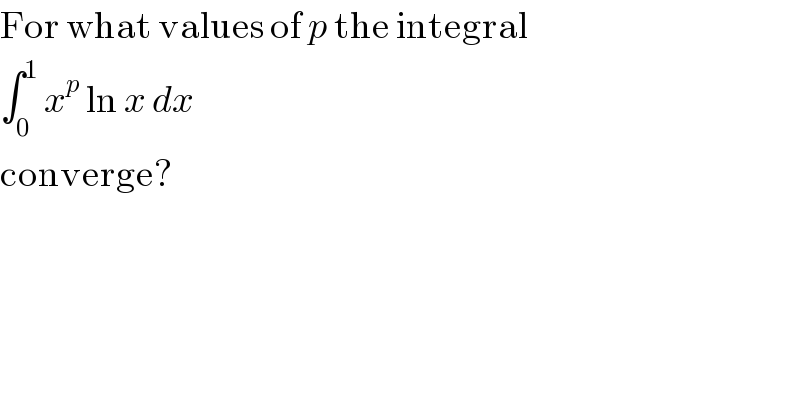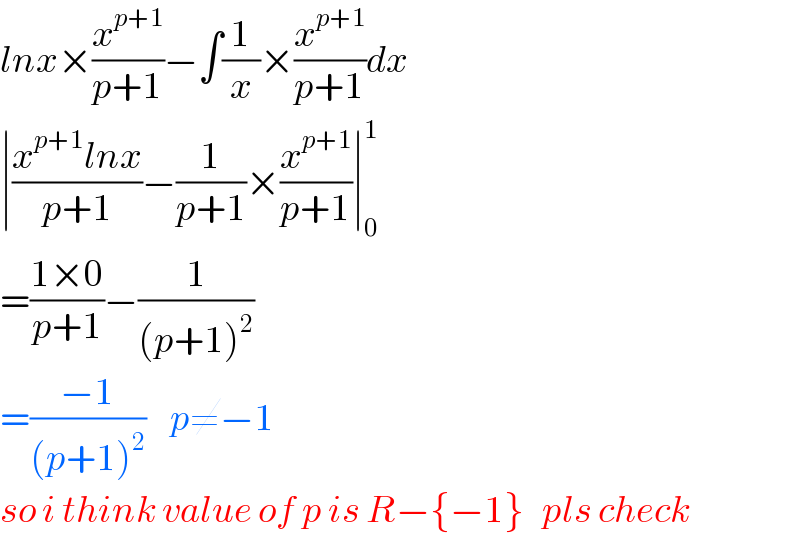Question Number 55856 by Joel578 last updated on 05/Mar/19

Commented by maxmathsup by imad last updated on 05/Mar/19

Answered by tanmay.chaudhury50@gmail.com last updated on 05/Mar/19

Commented by tanmay.chaudhury50@gmail.com last updated on 05/Mar/19

Commented by Joel578 last updated on 05/Mar/19
![Sir I think p should be ≤ −1 I =lim_(t→0^+ ) [((x^(p+1) (ln x))/(p + 1)) − (x^(p+1) /((p + 1)^2 ))]_t ^1 ⇒ lim_(t→0^+ ) {(0 − (1/((p + 1)^2 ))) − (((t^(p+1) (ln t))/(p + 1)) − (t^(p+1) /((p + 1)^2 )))} ⇒ − (1/((p + 1)^2 )) − lim_(t→0^+ ) {(t^(p+1) /(p + 1))(ln t − (1/(p + 1)))} when p + 1 = 0 ⇔ p = −1, I diverge when p + 1 < 0 ⇔ p < − 1, (p + 1) is negative, which mean t^(p+1) → ∞ as t → 0^+ . Hence I = −(1/((p + 1)^2 )) − ∞ = −∞ (diverge)](https://www.tinkutara.com/question/Q55878.png)
Commented by Joel578 last updated on 05/Mar/19

